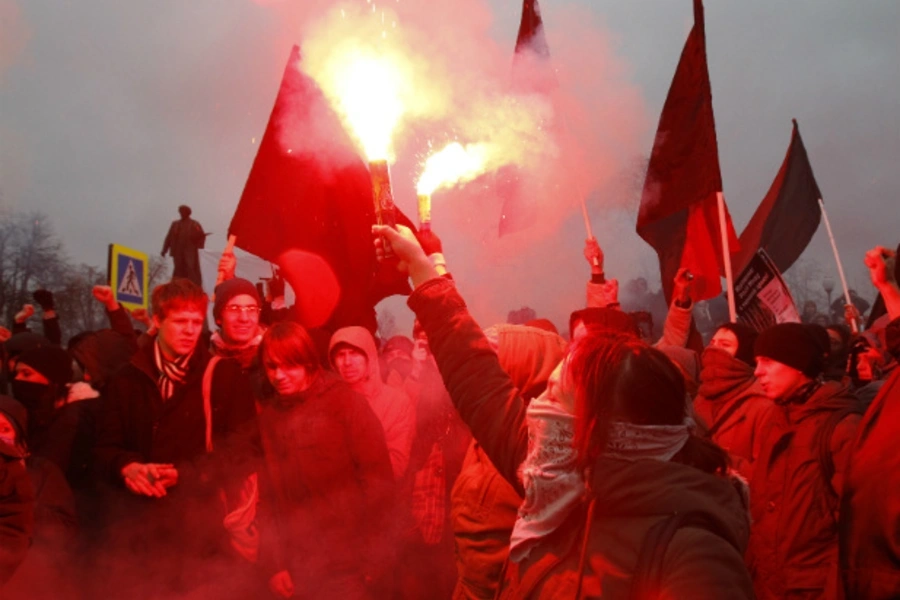Guest Post: Anya Schmemann on Putin and Russia’s Election

More on:
Russian voters go to the polls this Sunday to pick their next president. The outcome looks to be a foregone conclusion: Vladimir Putin will likely win more than 50 percent of the vote, avoid a runoff, and return to the presidency. I asked my colleague, Anya Schmemann, who keeps a close eye on Russian politics, to share her assessment of where things stand in Russia.
Since the outburst of Russian disapproval in December over reported fraud in the parliamentary elections, Putin has shored up his base, activated his impressive political machine, reminded Russians of the chaos of the 90s, and pulled out the well-worn “foreign interference” card. He has kept his opponents marginalized and divided, and they have been largely invisible.
While Putin cruises to victory, much on the surface of Russian politics looks the same as it was. It would be a mistake, however, to assume that nothing has changed. The shifts occurring deep within Russian society may take time to alter the political landscape, but they are fundamental and will have far-reaching consequences.
Although he remains powerful, Putin’s aura of invincibility has been punctured and his legitimacy seriously undermined. For their part, Russians are learning how to be active participants in their own polity.
Across Russia, people of all ages, backgrounds, and income levels joined demonstrations, commented on blogs and in social media, and have made their voices heard. While the numbers in the streets have been remarkable, most striking has been a fundamental change in attitude.
At a recent demonstration, one participant noted that Russians were trying to remember what it was like to be citizens and not subjects. He said (as quoted in the Washington Post), “I hope that year by year our Russian people will make themselves masters of their own fate.”
Russians have very little experience with “citizenship” in the Western sense. Under the Russian monarchy, they were subjects of the tsar and were only awarded some of the rights of citizens in the 1860s. Efforts to shape a modern concept of Russian citizenship came to an abrupt halt with the Russian revolution.
Since the Soviet Union collapsed, Russians have been citizens in name, but have not had much opportunity – or desire – to exercise their rights as citizens.
Citizenship, in the classical definition of the concept, confers rights as well as responsibilities on both the government and the people. The state exists for the benefit of its citizens and must respect their political, civil, and social rights. For their part, citizens should be actively involved in civic and government affairs.
Putin’s miscalculation was to play tsar and take the Russian people’s support for granted. When he cavalierly announced that he planned to be president again, he awakened in many Russians a sense of righteous indignation.
Many of the demonstrators say that while they do not want a revolution, they do want a more accountable and responsive government. They seek an end to corruption, cronyism, and repressiveness. Like all citizens everywhere, they want to know that they matter.
Putin will win this election and will likely serve his six-year term. He may even win the next term. But the Russian people have demonstrated that they are ready to challenge the status quo and that they are finally yearning to be involved citizens.
Tsar Vladimir will find, as have many monarchs and strongmen in world history, that a country with active citizens is not so easily manipulated.
More on:
 Online Store
Online Store